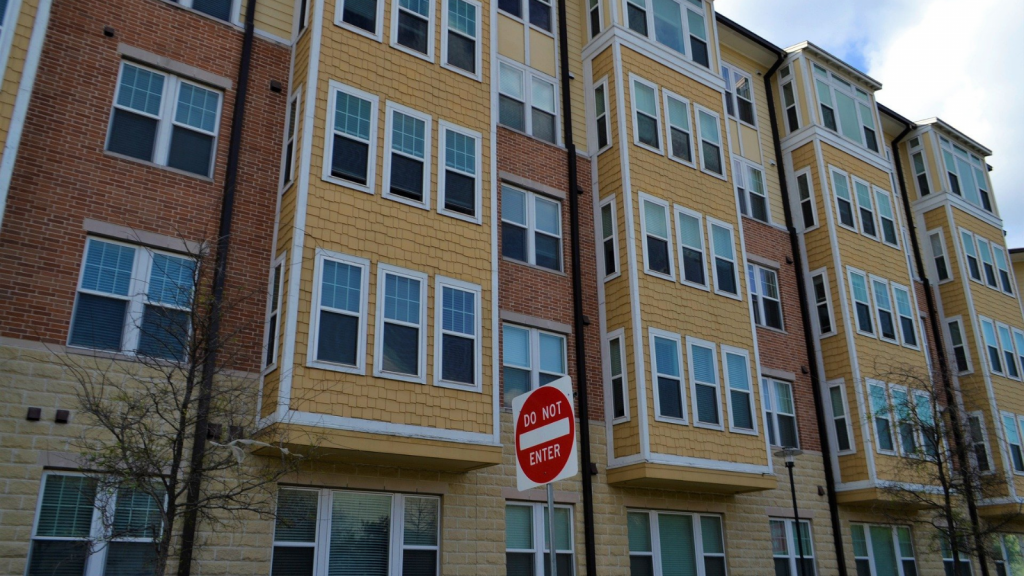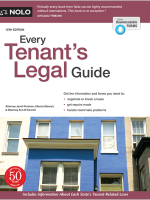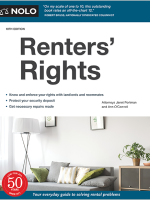From blasting music late at night to something as simply frustrating as not cleaning out the lint trap in the laundry room, living with a bad neighbor or two while living in an apartment complex is certainly difficult. Dealing with a landlord or rental company that is actively violating your rights as a tenant, however, is often a much more challenging situation. From the reasons to bring a lawsuit to the steps of the process, here is how to sue an apartment complex.
Before getting into the exact steps, it’s important to start with the several scenarios that can warrant a lawsuit against a landlord and apartment complex. This isn’t a comprehensive list, but it does cover some of the most common renter’s rights violations that can lead to a lawsuit.
What are some reasons an apartment complex can be sued?
As a renter, you have certain rights that must be acknowledged and protected by your landlord. Here are just some of the situations that may be grounds for a lawsuit against your apartment complex (it’s important to consult with a legal professional before making any kind of legal decision in these matters).
Uninhabitable Living Conditions
Every tenant has the right to livable conditions. Unfortunately, it’s not exactly uncommon for certain problems to make an apartment less-than so. Health hazards such as mold growth, lead paint, and radon gas can turn even the most comfortable unit into a dangerous environment. Similarly, maintenance concerns such as the heat not working during the winter or no running water are not acceptable living conditions. If a landlord or apartment complex refused to complete repairs for these problems, it could be grounds for a lawsuit.
Illegal Entries
Typically, a landlord must provide reasonable notice before entering a tenant’s unit. If a landlord violates this agreement (or if they’re entering for illegal reasons even with a notice), a lawsuit could possibly be brought against the person or company to stop the intrusions and to potentially recover damages.
Housing Discrimination
Under the Fair Housing Act, no tenant can be denied housing because of race, color, national origin, sex, religion, familial status, or disability. If any of these factors do come into play during a denial of housing, the Department of Housing and Urban Development (HUD) will investigate the claim and, if evidence of wrongdoing is proven, further legal action will be taken.
Violation of Rental Agreement Laws
Each state has specific landlord-tenant laws that must be adhered to when renting apartments. While these can and do differ depending on where you live, one thing doesn’t change — a landlord or rental company must follow them. If a law or laws was broken or specifically ignored during the rental process (for example, not claiming responsibility for repairs in the building), then it may be possible to sue the apartment complex for these violations.
Illegally Evicting
A lawsuit can be brought against your landlord or rental company if you think you’re being illegally evicted. Illegal evictions can come in several forms including retaliatory (such as evicting a tenant after repeated complaints about a valid maintenance or health issue) and discriminatory (such as evicting a tenant after they displayed religious or cultural items within accordance with the building’s rules).
Reasons an Apartment Complex can be Sued
- Uninhabitable Living Conditions
- Illegal Entries
- Housing Discrimination
- Violation of Rental Agreement Laws
- Not Following Security Deposit Laws
- Failure to Reimburse for a Repair Made by the Tenant
- Failure to Disclose Mold or Lead Paint Hazards
- Injuries Caused by Landlord or Apartment Complex Neglect
How to sue an apartment complex — The Steps
Suing an apartment complex or landlord requires certain steps to be taken, and it’s important that each be followed correctly to ensure your case remains strong (Please note: the following steps should not be taken as exact legal advice. Always consult with a legal professional first to make sure you’re following all local guidelines and mandates.)
Drafting a Complaint
The first step in suing an apartment complex is drafting a formal complaint (sometimes called a petition). The complaint is the actual document that begins the lawsuit process, but it must be drafted in accordance with local rules of the court.
The complaint lists all of the facts relevant to your situation, including the law you feel has been broken by the apartment complex or landlord. Depending on the amount you’re suing the complex or landlord for, your complaint may be able to be filed in small claims court (each state will have a small claims court monetary limit). If your amount exceeds that limit, the complaint will be filed in civil court.
Service of Process
Once the complaint has been properly drafted and filed in the appropriate court, an official copy of the paperwork needs to be personally delivered to the offending party. The rules differ by state, but usually a police officer or a professional process service can ensure the paperwork is delivered to the correct person. Who that is, however, can sometimes be difficult to determine. If the landlord of the apartment complex doesn’t own the building, the copy of the paperwork may be better delivered to the offices of the management company that oversees the building. Typically, employees of the management company are qualified to receive the paperwork, allowing the next steps of the lawsuit process to begin.
Court: Pretrial, Discovery, Settlement, Trial, Decision
Once the complaint copy has been delivered to the appropriate parties (and if the case can’t be resolved through negotiation), the court may hold a pretrial. During the pretrial session with the judge, several topics may be discussed, and the judge typically sets down basic rules for the trial-to-be. It’s important to note that the parties involved in the case can still engage in negotiation at this point in the process, potentially removing the need for a trial at all.
If there is no progress on an agreement during the pretrial phase, the process may move on to discovery. During the discovery phase, both parties involved in the case exchange the evidence collected and intend to produce during the trial. Depositions, requests for admission, interrogatories (basically written depositions), all may occur during this phase.
If an agreement still hasn’t been reached at this point, the case will go to trial. Once the presentation of evidence and arguments and any witnesses needed have been questioned, the judge will issue a decision regarding the matter.
Process of Suing an Apartment Complex
- Draft the Complaint: The formal complaint contains all facts of the case and must be filed in civil court or, if the amount is within the limit, small claims court.
- Service of Process: An official copy of the complaint must be delivered to the landlord or the apartment complex’s management office. A police officer or professional process server can make this delivery.
- Court Process: There are several phases to the court process. These may include pretrial (basic rules set by the judge), discovery (exchange of evidence, depositions, and more), and trail (arguments, a decision made by the judge).


